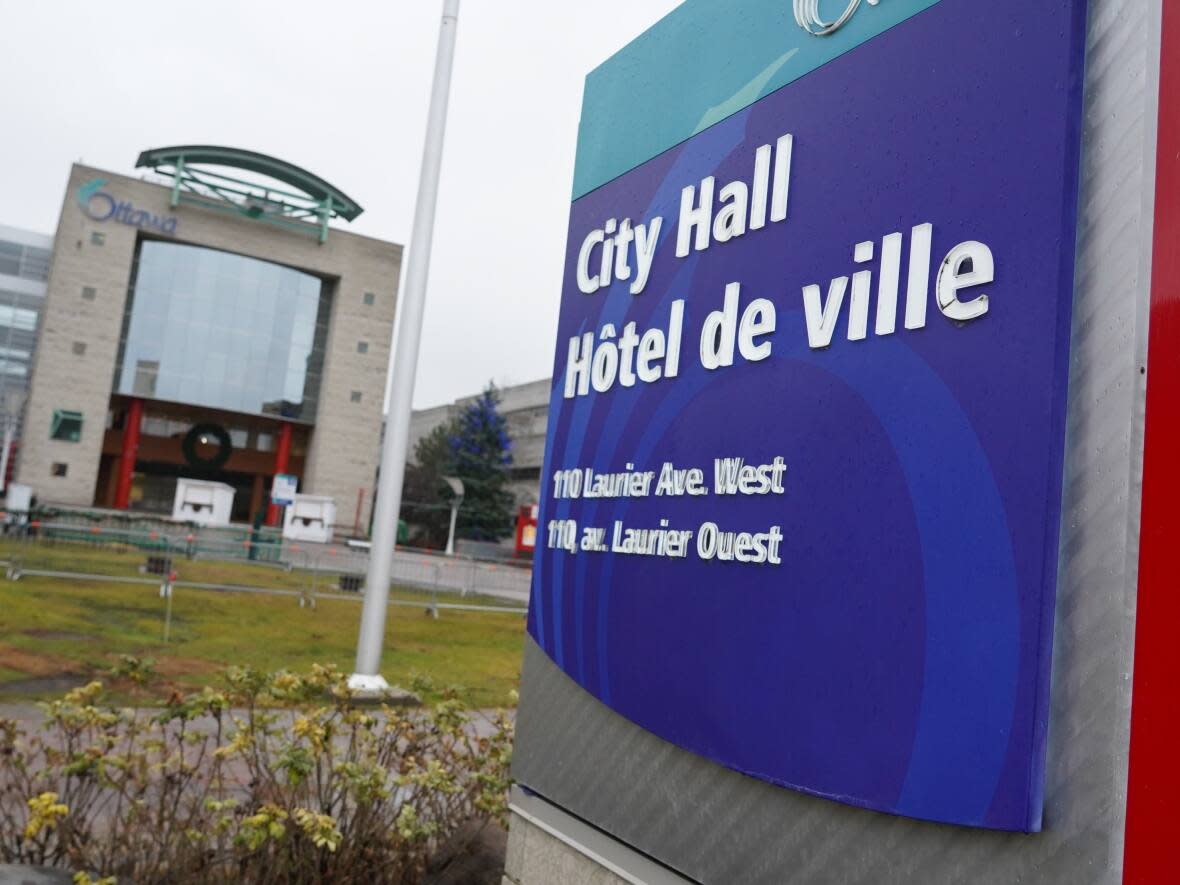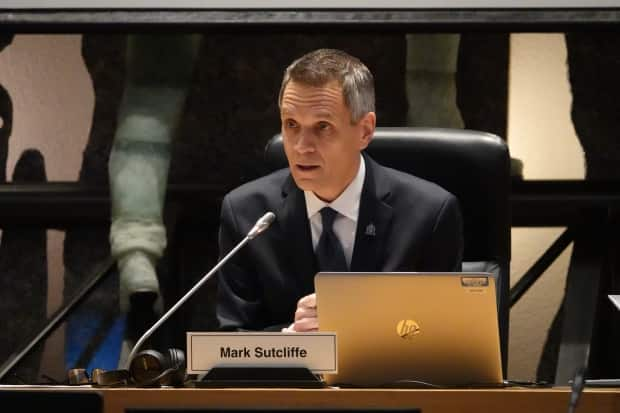City could aim for 2 to 2.5% tax increase while facing inflationary pressures

Ottawa Mayor Mark Sutcliffe remains committed to his campaign promise to raise property taxes by no more than 2.5 per cent as city staff embark on crafting a 2023 budget when many services face "extraordinary inflationary pressures."
City council will vote on formal budget directions for staff next week and ahead of that debate, all city departments — including the police services board and the transit levy — to increase by two or 2.5 per cent when draft budgets are tabled on Feb. 1.
That's a smaller increase than the current year's budget, which was capped at three per cent, in line with former Mayor Jim Watson's own election promises.
The report from chief financial officer Wendy Stephanson, who is the interim city manager after the departure of Steve Kanellakos earlier this month, agrees setting a predefined tax increase helps the city's fiscal discipline, but the report also lays out the many challenges ahead.
Sutcliffe continues to say he's not interested in cutting any programs and services, which he repeated during this fall's election campaign.
"That's what we owe the residents of Ottawa after the election campaign," he said. "People in Ottawa voted for low tax increases and that's what I intend to deliver in the budget."
Sutcliffe also intends to keep two other campaign promises in the budget: reducing the costs of recreation programs for children and youth by 10 per cent, and freezing OC Transpo fares for 2023.

Transit ridership a little better in October
OC Transpo has created the biggest hole in recent budgets as work continues to reach pre-pandemic ridership — the 2022 budget was based on 82 per cent average ridership, which was nowhere close to the reality.
Ridership at OC Transpo did see a bump this fall compared. September saw 64 per cent of 2019 levels, and then October saw 58 per cent. Para Transpo ridership was 68 per cent in September and 74 per cent in October.
When the city misses its ridership targets, it also falls short on fare revenue. It recently projected a $85 million shortfall for the year, and then received more bad news Thursday. The province will supply $22 million less than the city needs to cover the gap, which means it might need to turn to reserves.
The City of Ottawa has counted on those upper levels of government to cover pandemic-related losses and costs for the past few years, but staff do not expect that to continue into 2023, except for grants to Ottawa Public Health.
Staff plan to give council "mitigation measures" to consider to save money, such as deferring capital projects, pausing discretionary spending, and "further efficiencies and wherever possible one-time reduction in expenditures."
As it stands, the 2023 budget is also to be based on a two to 2.5 per cent transit levy on the tax bill, whereas 2022's transit levy was to be up to 4.5 per cent.
Fuel, construction inflation
At the same time, staff write of "unprecedented inflationary pressures impacting all city services" due to the supply chain and "current external economic conditions."
They expect "significant impacts" for the 2023 budget, especially when it comes to fuel prices, parts and supplies, and construction.
The major expense — compensation and benefits for employees — will also increase, along with the minimum wage set by the province.
The Ottawa Police Service under new chief Eric Stubbs could be asked to craft a budget that rises only by two to 2.5 per cent, or between $13.4 and $15.2 million.
The police budget has been the subject of intense debate in recent years. Former councillor Diane Deans, as police board chair, directed former chief Peter Sloly to craft a budget with a two per cent increase. At the end of October, the force was struggling to hit even half its target of $7 million in permanent budget reductions.
The new Ottawa city council has also expressed interest in a wider review of city programs, or a line-by-line review of expenses.


